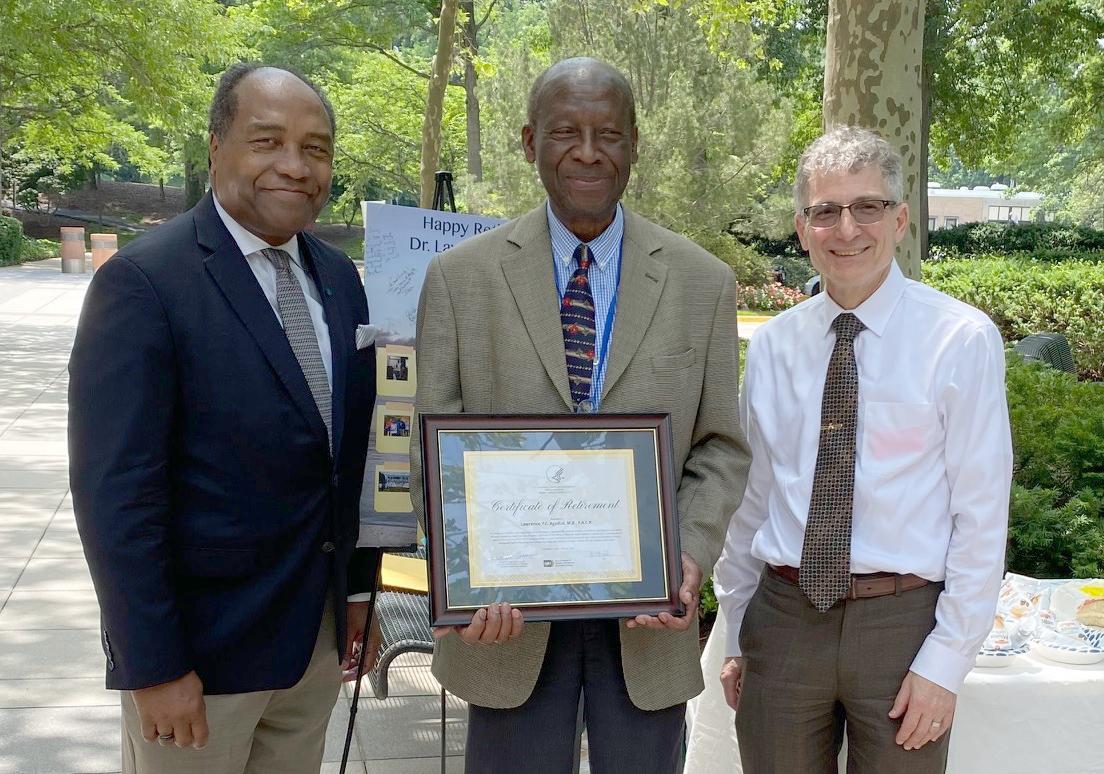Agodoa, NIDDK Pioneer for Health Equity, Retires

Dr. Lawrence Agodoa, director of NIDDK’s Office of Minority Health Research Coordination (OMHRC), has retired after 35 years of service to NIH.
As OMHRC director since 2000, Agodoa spearheaded many of NIDDK’s signature programs to advance health equity and scientific workforce diversity. His career accomplishments also include leading the development and implementation of NIDDK’s first Strategic Plan on Minority Health Disparities and making valued public health contributions through kidney disease research and clinical practice.
In all his roles, he remained tirelessly dedicated to achieving NIDDK’s mission of improving health for all people.
“NIDDK has enabled me to carry out my ideal professional pursuits,” said Agodoa. “Therefore, there has not been a need for me to work anywhere else since my arrival at NIH.”
In 1987, he joined the NIH as a program director and scientist in the institute’s Kidney, Urologic, and Hematology Division, where his work focused on reducing racial and ethnic disparities in end-stage renal disease. He led several important clinical trials, including the landmark African-American Study of Kidney Disease and Hypertension (AASK), which showed for the first time that a class of medications called ACE inhibitors could slow the progression of kidney disease caused by high blood pressure.
Under Agodoa’s leadership, OMHRC established several long-term diversity programs that, for more than two decades, have supported people from groups that have been historically underrepresented in biomedical research.
Among the initiatives Agodoa helped create and develop are NIDDK’s Diversity Summer Research Training Program and Short-Term Research Experience to Unlock Potential, which provide training to high school and college students from under-resourced communities; and the Network of Minority Health Research Investigators, which supports and mentors researchers throughout their careers.

Agodoa also oversaw the Minority Organ and Tissue Donation Program, which he helped initiate in 2001 to reduce barriers to organ and tissue donation among various racial and ethnic communities. He has published more than 300 papers and served as a physician at Walter Reed Army Medical Center, professor at the Uniformed Services University of the Health Sciences and consultant in gastroenterology and urology for the Food and Drug Administration.
In retirement, Agodoa will return to Seattle, where he completed his medical residency and postgraduate training in internal medicine, nephrology, renal pathology and rheumatology.
“Larry is a highly respected and valued leader, and his transition is a great loss to NIDDK,” said NIDDK director Dr. Griffin Rodgers. “His insights and outstanding contributions have advanced NIDDK’s mission and made a significant impact on public health. We wish him the very best in this exciting new chapter.”
